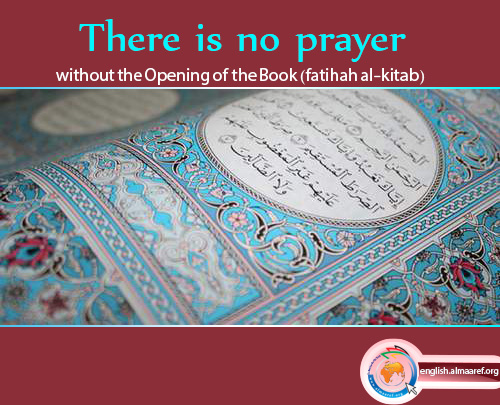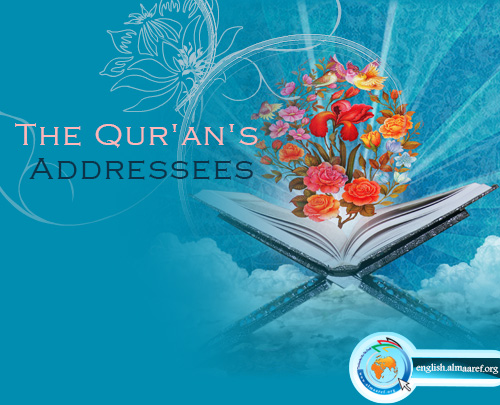Knowing the Verses of the Qur`an which are “Makki” and “Madani”
In regards to the time of their revelation, the verses of the Qur`an are divided into two categories – they are either verses which were revealed before the migration (to Madinah), or those which were revealed after the migration (to Madinah). The first group of verses are known as ‘Makki’ while the second group are referred to as ‘Madani.’1
The Makki verses have their own particular style to them and the Madani verses also have their own style.
The verses which are referred to as ‘Makki’ were revealed at a time in which the Muslims lived the life of a small “unknown” group who did not have the power to stand up and struggle against those who opposed them. The condition of their lives did not permit them to go forth to elucidate upon the practical laws of Islam such as Salat, Sawm, Zakat, Khums and Jihad. Therefore, a majority of the verses of the Makki period were in regards to the polytheists and a majority of these verses of the Qur`an were in regards to elucidating on the beliefs and lofty theological issues of the faith of Islam.
However, the conditions which existed in Madinah were of another form and after seeing that the environment was friendly to them, the Muslims emerged as a powerful force. Consequently, the explanation of the practical laws of Islam was entirely possible. It is for this reason that the verses in relation to the practical laws of Islam such as those of Salat, Sawm, Zakat, Khums and Jihad were revealed in the city of Madinah.
Being aware of these two types of verses will definitely help a person reach the goal of the verses of the Qur`an.
The scholar who is not able to correctly differentiate which verse is Makki and which is Madani, may say, in regards to the verse which reads:
﴾…Say (O’ Muhammad): I ask you (Muslims) no reward for my work except love for my close family members.﴿2
that it was not revealed in regards to the family of the Prophet (peace be upon him and his household) since the Surah which this verse comes from is a Makki chapter and was revealed in the city of Makkah. Thus, for the Prophet (peace be upon him and his household) to ask for such a thing (love for his close family members) at that time period (when he had no family members) is nothing but him merely expressing an eloquent statement full of pleasantries (with no way to actually implement it).
However, if we look at the books written in regards to the recognition of the Makki verses from the Madani verses, it would be clear to such a commentator that simply because a chapter of the Qur`an is known to be a Makki chapter does not mean that all of the verses of that Surah were revealed in Makkah! It is possible that Makki verses may be found in chapters of the Qur`an which are known as Madani and vice versa.
More than this, the commentators of the Qur`an who have considered Suratul Shura (which is where the verse quoted above has been taken from) to be revealed in Makkah have mentioned that specifically this verse (under discussion) and a few other verses of this Surah are Madani.3
What has been mentioned up until this point are fourteen fundamental pillars of a correct method of commentary of the Qur`an, some of which have a particular priority associated with them. Even though we are able to group some of them with others in the discussion, such as the eleventh and twelfth points which were ‘knowledge of the history of Islam’ and ‘knowledge of the previous prophets sent and their stories’, which could technically be covered under the heading of ‘knowledge of the history of revelation of the verses of the Qur`an’, however in order to make this discussion clear and unambiguous, we decided to review each of these separately.
* Introduction to the Science of Tafsir of the Qur`an. By Ayatullah Ja'far Subhani."Chapter 13 "
1- The common and well-known terminologies which are used in the commentary of the verses of the Qur`an are ‘Makki’ and ‘Madani’, just as has been stated. However, these verses are known with other words and terminologies which those who are specialists in the field of Tafsir are well acquainted with.
2- Suratul Shura` (42), Verse 23
3- We are able to discern which surahs were revealed in Makkah and which were revealed in Madinah by keeping the following two points in mind:
1. The traditions (ahadith) which mention to us the place of revelation of a specific surah.
2. Pondering over the contents of the verses of the surah as this action usually acts as a chain of events and tells us if the surah was revealed in Makkah or Madinah.
Seeing as how the cities of Makkah and Madinah were two completely different environments, we understand that each was governed by its own ways of thought, and thus the religion of Islam was put face to face with issues and difficulties which were specific to that particular area. Thus, after we are acquainted with the way of thinking and the particular issues of an area (Makkah or Madinah), and have studied the contents of a surah, we are then able to understand where the surah or the verses of the surah were revealed.
For instance, the environment of Makkah was polluted with polytheism and idol worship. The Jews and Christians had not permeated into this city and thus, those who had true faith (iman) were very small in number. The issue of jihad was not brought up in this environment and in during this time, the Prophet (peace be upon him and his household) had frequent dealings and relations with the idol worshippers. The point of difference of the Prophet (peace be upon him and his household) with the polytheists (of Makkah) was concerning tawhid (the Oneness of Allah (awj)) and the concept of being brought back to life on the Day of Judgment after the physical death in this world.
It is for this reason that the verses whose axis rotates around the discussion of issues such as the origin (of life), Resurrection Day, reproaching polytheism and speaking about the outcome of the previous generations which were inflicted with the anger and punishment of Allah (awj) due to not following His commandments and their appointed Messengers were most often revealed in Makkah.
However the environment in Madinah was an atmosphere of faith, virtue and piety. It was a center where the Ahlul Kitab - especially the Jews – had influenced and permeated into. It was an atmosphere of young men, heroes, champions and brave individuals who readily accepted the teachings of Islam. In addition, it was also an environment where the Muslims had little need to discuss the foundational beliefs (Usul ad-Din) of the religion, and thus it was time for them to become acquainted with a series of other issues including their practical responsibilities, ethical and societal guidelines and the performance of devotional acts such as salat, sawm (fasting), zakat and other issues. It is because of this fact that the verses in relation to the Tawrat and Injil and the beliefs of the Ahlul Kitab (Jews and Christians) and the explanation of the altercations, battles and wars of the Muslims with the Ahlul Kitab and the polytheists were revealed in Madinah.
Also, the verses which speak of the principles of etiquette and the commandments of the religion including the obligatory (wajib) and recommended (mustahab) acts were all revealed in Madinah – meaning after the migration (hijrah) of the Prophet (peace be upon him and his household) from Makkah to Madinah.
Given that the mood in Madinah was one of interaction between the Prophet (peace be upon him and his household) and the Ansar (the local people of Madinah who welcomed the Prophet (peace be upon him and his household) and his followers to their city) and other groups that slowly accepted the teachings of Islam, this limited time frame did not permit the Prophet (peace be upon him and his household) to discuss issues such as condemning the idols and idol worshippers (while in Madinah – as they had already been covered while in Makkah).
Conversely, the atmosphere in Makkah was not conducive to discussing ethical issues, since the people of Makkah still held doubts concerning the principles of Islam (origin of life and Day of Resurrection), did not attest to the prophetic mission of the Prophet of Islam (peace be upon him and his household) and had not yet developed faith in his universal message. [Taken from, The Islamic Moral System: A Commentary of Surat al-Hujurat by Ayatullah Ja’far Suhani translated by Saleem Bhimji.


















